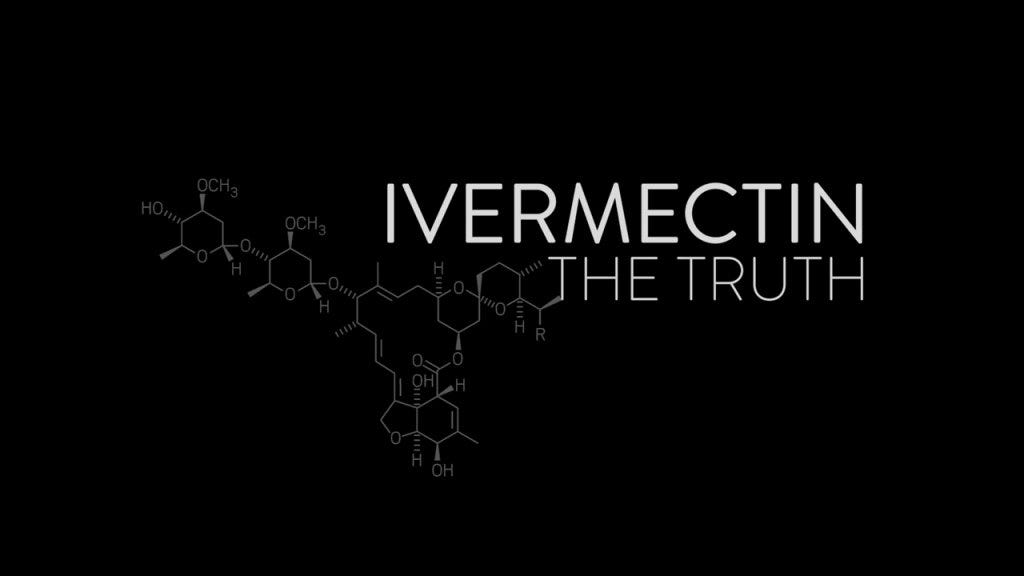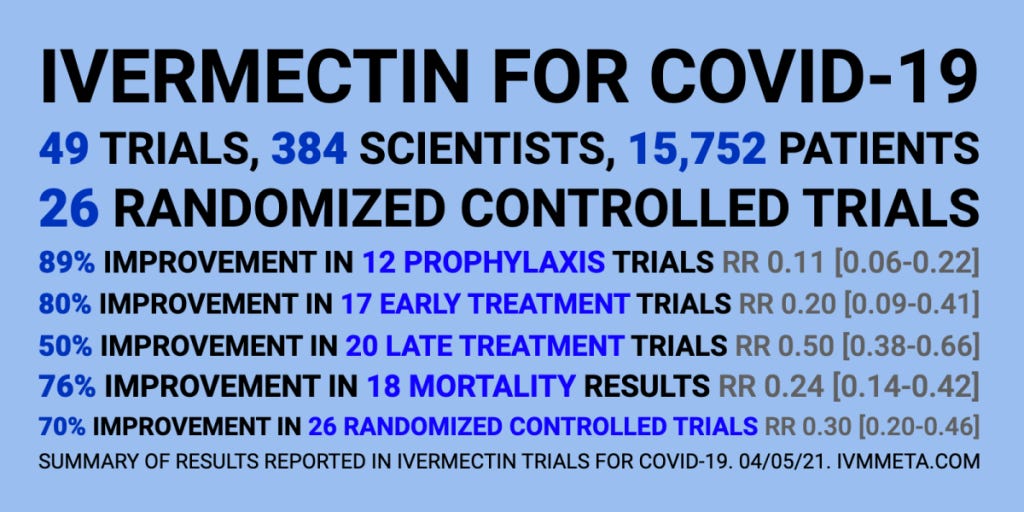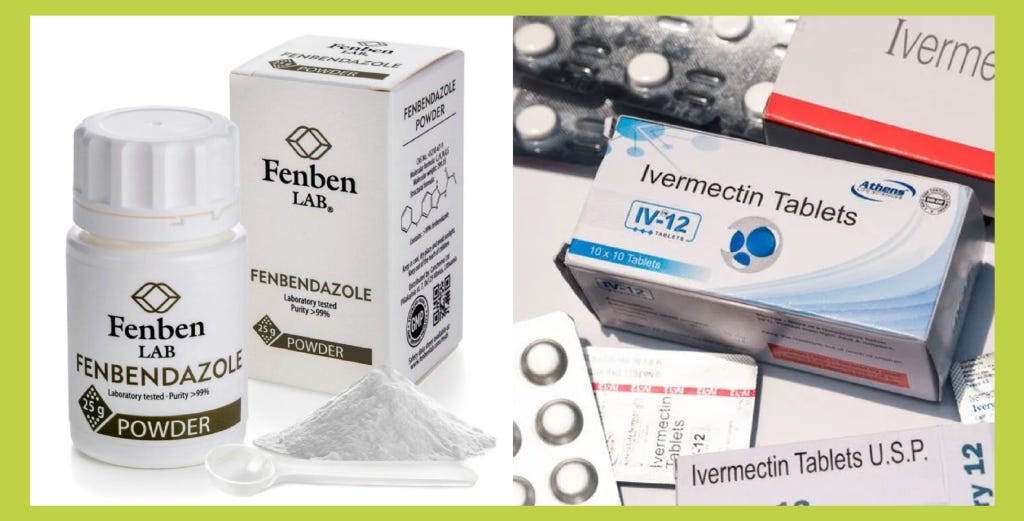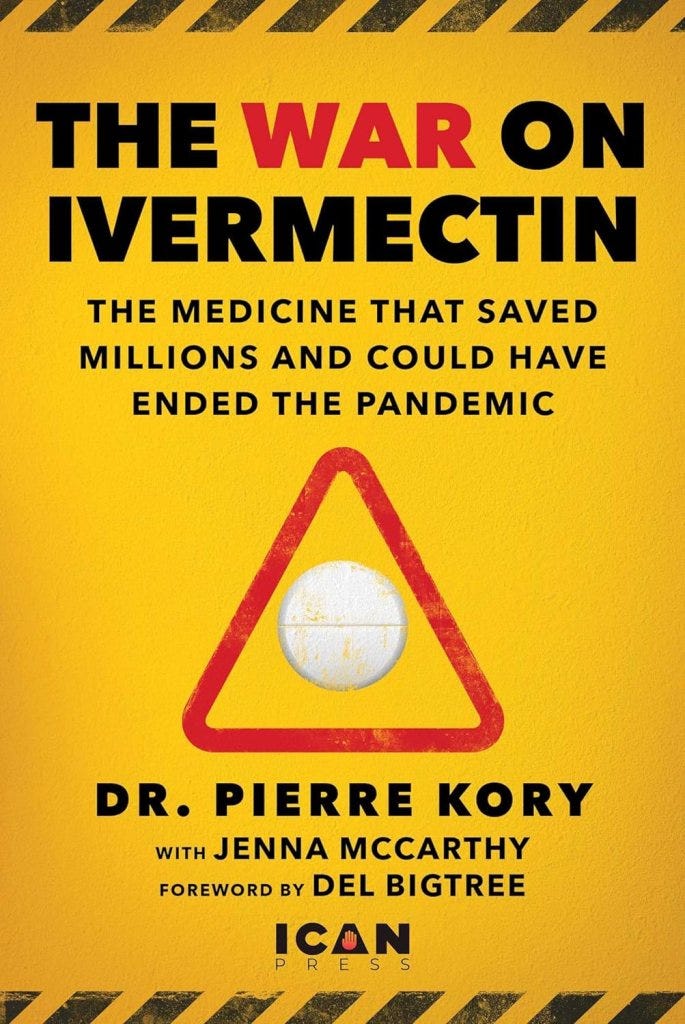Ivermectin - Another Powerful Wonder Drug
Like Fenbendazole, Ivermectin is Proving to Be a Powerful and Cheap Drug To Treat Many Ailments Including the Big "C"...
👉 Information taken from my recent blog post about Fenbendazole and Ivermectin
👉 Here’s my Substack article on Fenbendazole
Ivermectin, a Nobel Prize-Winning discovery that the media called “horse paste,” not only effectively treats COVID-19 but also several other ailments — and possibly cancer. Initially approved for use in the 1980s, has primarily been recognized for its role in combating parasitic infections, particularly in tropical regions. Given the drug’s transformative impact on a myriad of parasitic diseases, its newfound prominence in global conversations warrants a deeper dive into its benefits and potential. Originally developed by Merck & Co. in the late 1970s, Ivermectin was first used as a veterinary drug against worms in animals. In humans, its primary utility has been in the treatment of diseases caused by parasitic worms, like onchocerciasis (river blindness) and lymphatic filariasis. Due to its efficacy against these diseases, the World Health Organization (WHO) has listed Ivermectin on its list of essential medicines.
It’s important to note the many amazing qualities of this inexpensive, safe medication that’s on the World Health Organization’s List of Essential Medicines. It’s saved countless lives globally in its use as an anti-parasitic, and for that it won its discoverers the Nobel Prize in Medicine in 2015. But in addition to that, its other diverse therapeutic effects, including broad antiviral activity, have helped solidify its reputation as a “wonder drug.”
For example, many may not know that Ivermectin, even on its own, has profound anti-cancer effects without significant toxicity, unlike many traditional medications that work against cancer. And when used in combination, it can turn chemotherapy-resistant cancers into chemotherapy-sensitive ones, as well as work synergistically with non-traditional anti-cancer agents, such as dichloroacetate.
Ivermectin won the 2015 Nobel prize in medicine for curing disfiguring parasitic diseases like elephantiasis and river blindness; it was also listed on the WHO list of “essential medicines”; and we know that it prevents COVID and saves lives via multiple different mechanisms.
Technical review article detailing the many ways it fights COVID
Summary meta-data of all trials
Ivermectin can also induce remyelination. Myelin is the lining around nerve cells that gets destroyed in MS—Ivermectin can reverse this in MS animal models. (This is a complex topic beyond the scope of this post, and not without caveats, so I’ll plan to write a separate post about MS soon.) Ivermectin also promotes the regrowth of damaged peripheral nerves and functions as an immunomodulator, meaning that it helps fix an abnormal immune response. And to top it off, “Ivermectin has continually proved to be astonishingly safe for human use.”
Ivermectin has profound anti-cancer properties.
Overcomes cancer cell resistance to chemotherapy (read here)
Inhibits a protein (PAK1) essential for the growth of more than 70% of all cancers (read here)
Multiple mechanisms of action against breast cancer (read here)

The Ivermectin Controversy: Media’s Role in Shaping Perceptions
The debate surrounding Ivermectin, particularly its potential application against COVID-19, has emerged as one of the most divisive topics in recent medical discourse. While the scientific community naturally gravitates towards rigorous inquiry and debate when confronted with new treatment proposals, the Ivermectin discussion seems to have taken a turn that transcends typical scientific deliberation.
Mainstream media, in its role as a purveyor of information to the masses, has a responsibility to present data and perspectives in a balanced manner. However, with Ivermectin, many outlets appear to have adopted a decidedly dismissive stance from the outset. Reports often emphasize the drug’s primary use as an anti-parasitic treatment for animals, sometimes invoking sensationalized headlines that label it as a “horse dewormer.” Such framing can obfuscate the drug’s long-established human applications and its recognition by the World Health Organization as an essential medicine.
Dr. William Makis: IVERMECTIN and CANCER, it has at least 15 anti-cancer mechanisms of action. Can Ivermectin Treat COVID-19 mRNA Vaccine Induced Turbo Cancers? – 9 Ivermectin papers reviewed
Papers Reviewed
2023 Sep.23 – Man-Yuan Li et al – Ivermectin induces nonprotective autophagy by downregulating PAK1 and apoptosis in lung adenocarcinoma cells
2023 May – Samy et al – Eprinomectin: a derivative of ivermectin suppresses growth and metastatic phenotypes of prostate cancer cells by targeting the β-catenin signaling pathway
2022 Nov – Lotfalizadeh et al – The Anticancer potential of Ivermectin: Mechanisms of action and therapeutic implications
2022 Oct – Jian Liu et al – Progress in Understanding the Molecular Mechanisms Underlying the Antitumour Effects of Ivermectin
2022 Jun – Daeun Lee et al – Ivermectin suppresses pancreatic cancer via mitochondria dysfunction
2021 Aug – Shican Zhou et al – Ivermectin has New Application in Inhibiting Colorectal Cancer Cell Growth
2021 Jan – Mingyang Tang et al – Ivermectin, a potential anticancer drug derived from an antiparasitic drug
2019 Sep Intuyod et al – Anti-parasitic Drug Ivermectin Exhibits Potent Anticancer Activity Against Gemcitabine-resistant Cholangiocarcinoma In Vitro
2018 Feb – Juarez et al – The multitargeted drug ivermectin: from an antiparasitic agent to a repositioned cancer drug

Ivermectin Studies: https://c19ivm.org
February 2018 – Juarez et al – The Multitargeted Drug Ivermectin: From an Antiparasitic Agent To a Repositioned Cancer Drug
Satoshi Omura at the Kitasato Institute discovered Ivermectin in 1979 and was awarded a Nobel Prize in Physiology or Medicine for this discovery in 2015
Ivermectin was FDA Approved for human use in 1987 to orally treat onchocerciasis, also known as river blindness, caused by the blackfly-transmitted parasite Onchocerca volvulus
Ivermectin is annually taken by close to 250 million people
Most patients treated with Ivermectin have no side-effects other than those caused by the immune and inflammatory responses against the parasite, such as fever, pruritus, skin rashes and malaise
maximum concentration in plasma is reached 4-5 h after its oral administration
Its half-life is approximately 19 h and is metabolized in the liver by the cytochrome CYP1A and CYP3A4 complexes, generating 10 metabolites, mostly demethylated and hydroxylated.
Its excretion is mainly by feces and only 1% is excreted in the urine
Ivermectin exerts antitumor effects in different types of cancer.
Read More of Dr. Makis’s Ivermectin Study HERE It’s a LONG Article
Synergistic pairing of Ivermectin and Fenbendazole found HIGHLY EFFECTIVE at preventing and treating cancer
One of the “side effects” of taking Ivermectin for COVID, it turns out, is that it also helps prevent cancer cells and tumors from forming. This could be very helpful for those dealing with the sudden onset of “turbo cancer,” a phenomenon that appeared not long after the launch of Operation Warp Speed. If “fully vaccinated” people who got jabbed for COVID had easy access to Ivermectin, many of them could potentially find relief and healing from it. And even better is the fact that Fenbendazole, another anti-parasite drug, also works to fight against cancer.
“What would happen if one did a combination therapy for both the prevention and treatment of cancer using BOTH Ivermectin and Fenbendazole?” asks “2nd Smartest Guy in the World” on his Substack. “The synergistic pairing would be far more effective than just using one of these miraculous drugs.” When taken together, Ivermectin and Fenbendazole deliver a one-two punch to cancer. When combined with other anti-cancer nutrients such as quercetin, vitamin C and vitamin D, and curcumin, the effects are even more pronounced. Preclinical studies show that both Ivermectin and Fenbendazole exhibit cytotoxic effects against cancer cells. The two drugs also inhibit the growth and spread of cancerous tumors. The mechanisms underlying these effects appear to involve disruption of critical cellular processes, leading to cancer cell death.
Both Ivermectin and Fenbendazole are off-patent drugs, meaning their original intended use as licensed has expired and they have become generics. This allows for many different generic drug manufacturers, including a slew of them across India, to produce them cheaply and abundantly.

Here Are Some Great, Informational Videos on “Turbo Cancers” on My Rumble Channel: https://tinyurl.com/nkp2rtb5
Ivermectin may attenuate arthritis, and even fully cure it … Evaluation of therapeutic potential of Ivermectin against complete Freund’s adjuvant-induced arthritis in rats: Involvement of inflammatory mediators:
https://pubmed.ncbi.nlm.nih.gov/37085956

Conclusion:
Ivermectin has undoubtedly made a mark in the world of medicine, transforming the lives of millions who suffer from a multitude of diseases. As with any drug, its applications should be based on robust scientific evidence, and while its potential continues to be explored in various domains, its proven track record against parasites remains its most significant contribution to global health. As research continues, the scientific community and the public alike await further insights into this multifaceted drug’s full range of capabilities.













